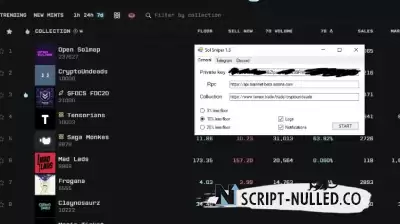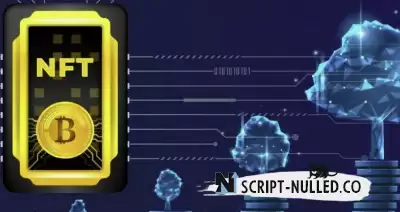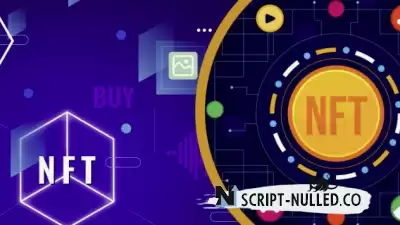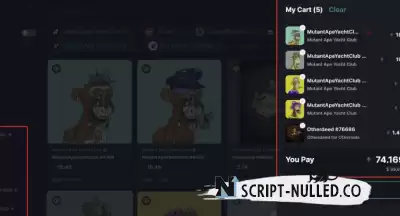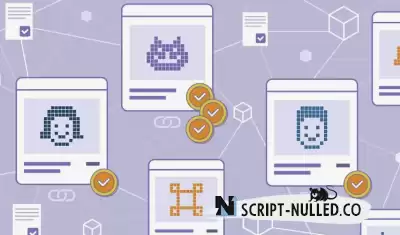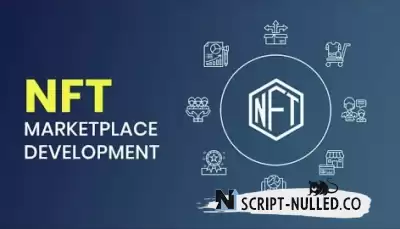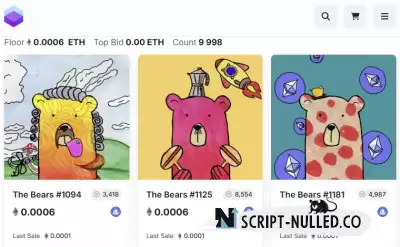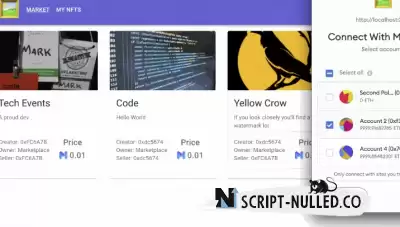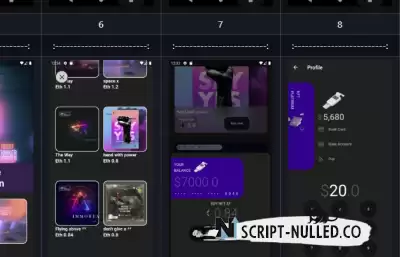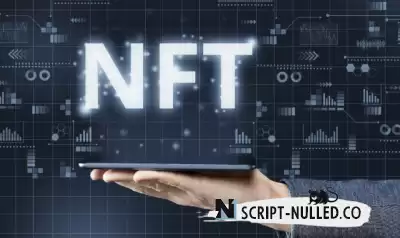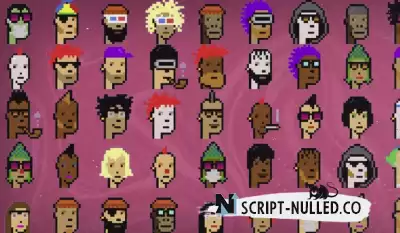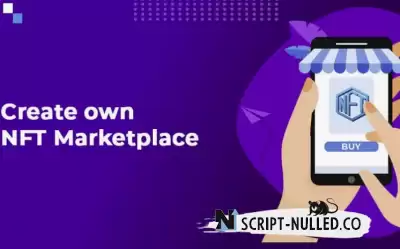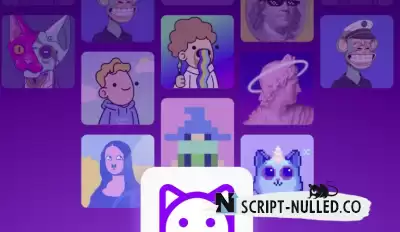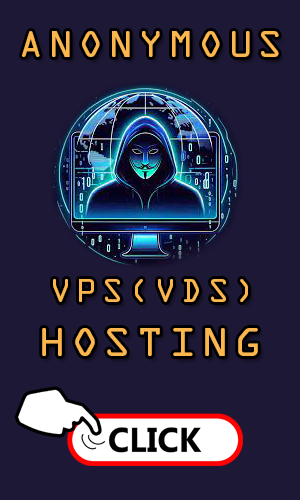Create your own NFT Marketplace using our marketplace API
Markeplace NFT API
Solana NFT Sniper, developed in C# on the .NET Framework 4.5, smoothly connects with the Tensor Marketplace through the Tensor API to analyze NFT collections. This setup provides a strong and compatible base, enabling efficient access and handling of various Solana-based NFT projects. The program offers a high-performance solution for users looking for a dependable and advanced tool for streamlined NFT trading on the Solana blockchain.
Contracts herein define a minimal general trustless marketplace for any ERC-721 or ERC-1155 implementation. They support:
batch trading
royalties
withdraw pattern to avoid re-entrancy issues
events for optimal subgraph indexing
They are well-tested, a combination of stateful and unit tests was used.
You can use poetry for easy python virtual environment and requirements handling.
Launch a Marketplace of NFT
mTrading is an open-source development kit that enables you to build your own NFT trading aggregator and marketplace. The SDK provides a comprehensive set of tools and APIs that greatly simplify the development process of a general trading aggregator like Gem.xyz or Blur.io, and allows developers to access real-time order feed and NFT transaction data. With the SDK, you can easily aggregate orders and functionality from mainstream marketplaces such as Opensea, Looksrare, Blur, x2y2, Sudoswap, etc, all in your products and communities.
An open source NFT marketplace
An open source NFT marketplace built on Reservoir. (v2)
is an open-source marketplace built using the Reservoir API that provides access to instant liquidity aggregated from major trading venues. We encourage developers to use this project as a reference for their own implementation, or even fork the project and make their own meaningful changes.
Nft market place concept app with cool animation. Non Fungible Tokens (NFTs) are digital assets that represent objects like art, collectible, and in-game items. They are traded online, often with cryptocurrency, and are generally encoded within smart contracts on a blockchain
dart app firebase frontend animation cryptocurrency flutter nft flutter-apps flutter-demo flutter-examples flutter-widget flutter-ui
NFT Contracts Software
Create a NFT marketplace
API NFT app development
Unlock the potential of your NFT app with Moralis' NFT API. Our cross-chain NFT API solution simplifies the process of launching, verifying, analyzing, trading, and showcasing NFTs. Designed by developers for developers, our API empowers you to build remarkable NFT experiences effortlessly.
Join Moralis and revolutionize your NFT app development, creating meaningful shared experiences for your users across the web3 ecosystem. Explore our NFT API to access the top features and unlock cross-chain NFT compatibility, making your NFT app development faster and more efficient than ever.
Site Search
Site Menu
☑ Websites Scripts
Recent comments

Survey on the website
Evaluate the work of the site
Tag Cloud
Popular
Statistics
- +5 Total articles 7411
- +22 Comments 5098
- +24 Users : 7482

 Spain
Spain
 Portugal
Portugal



